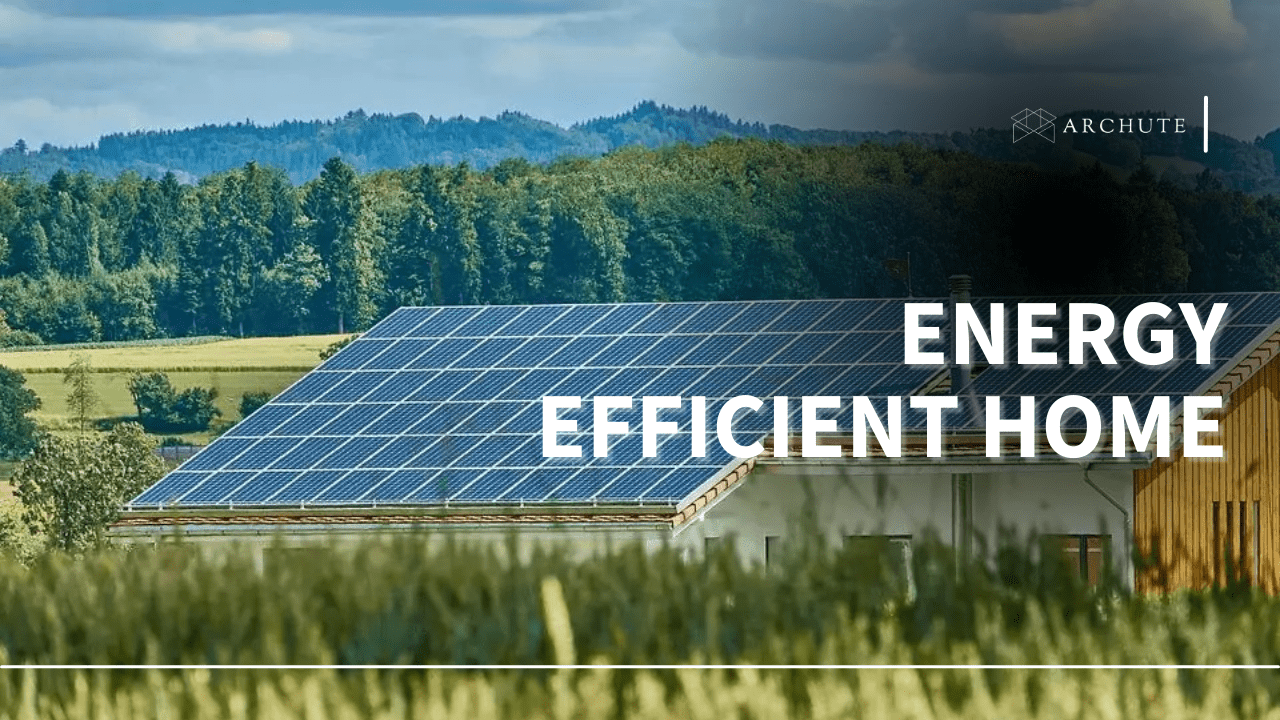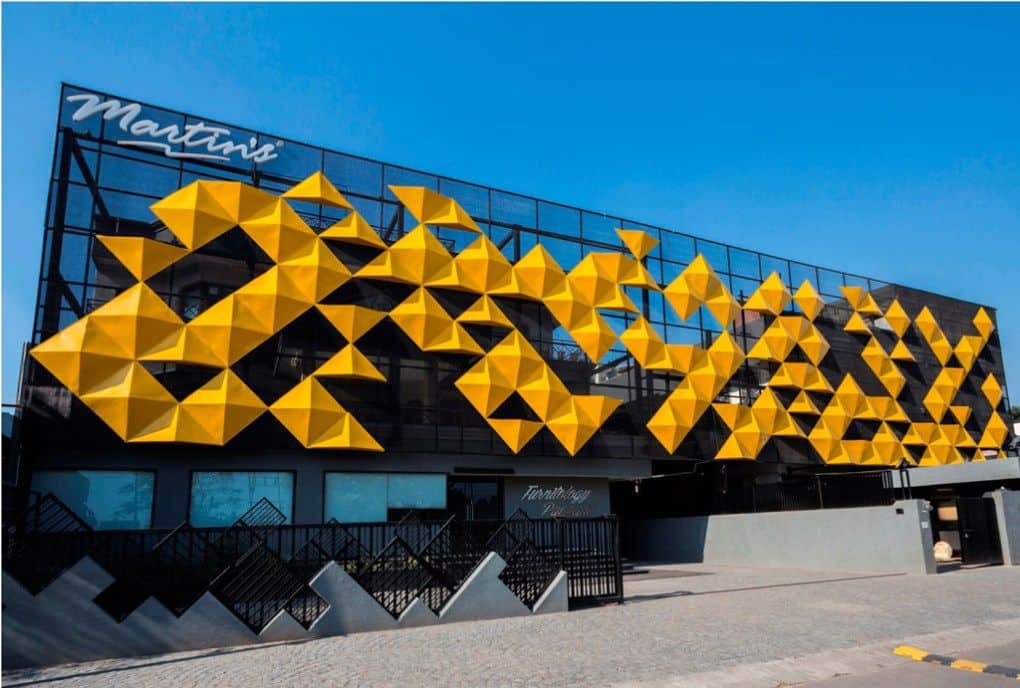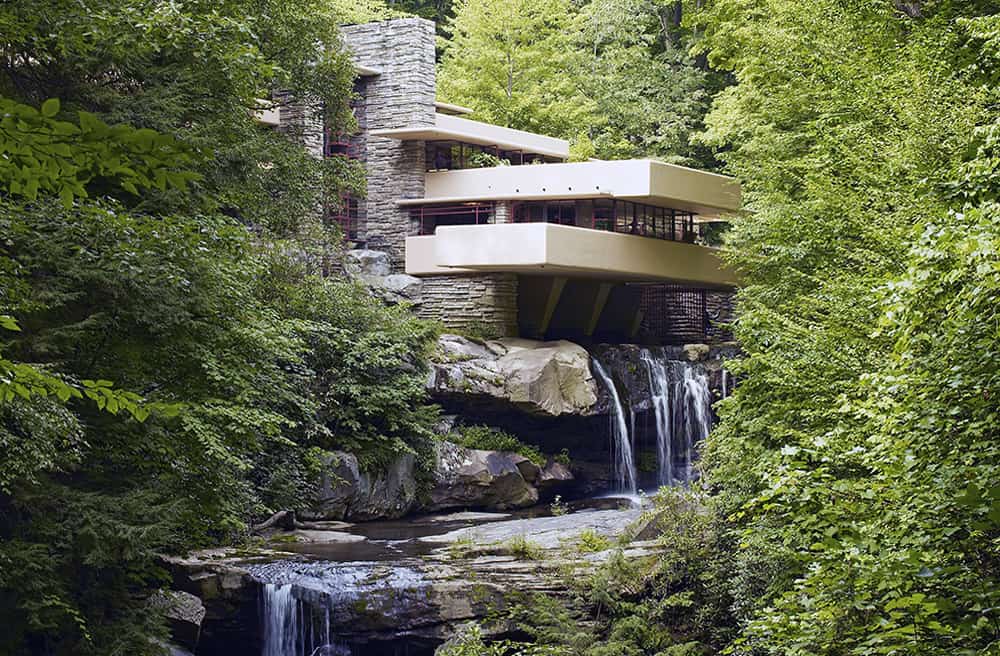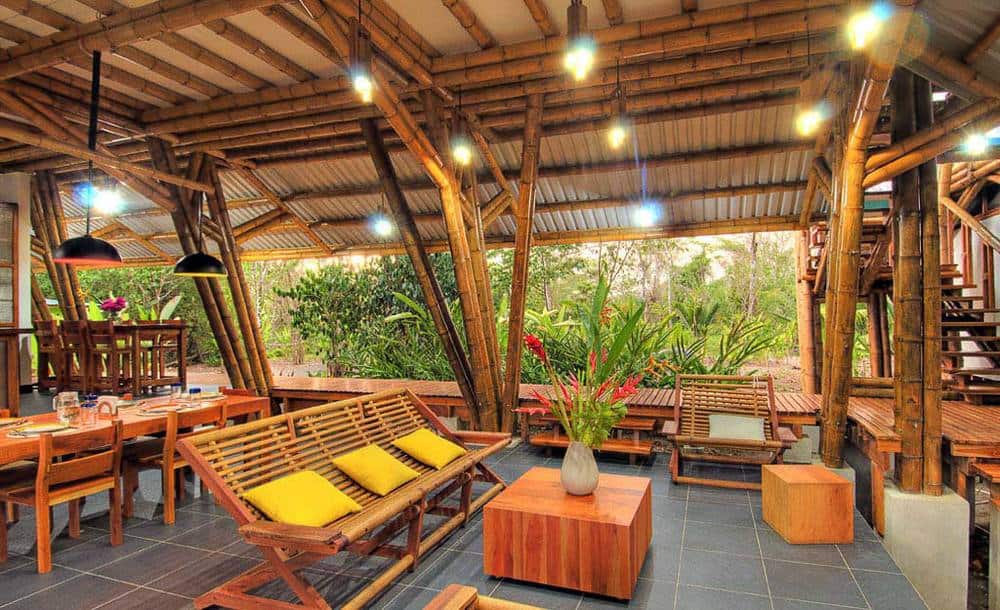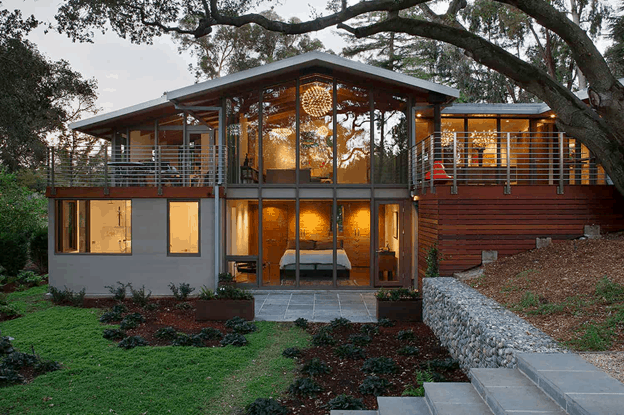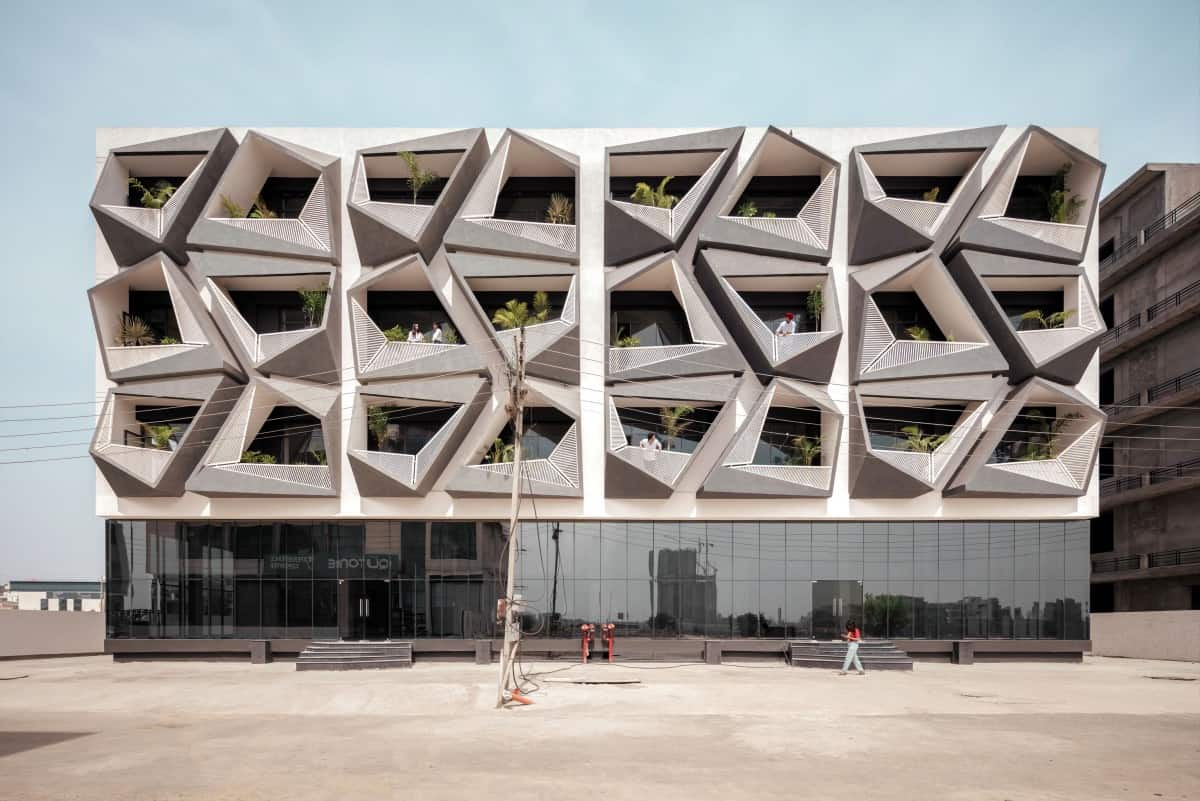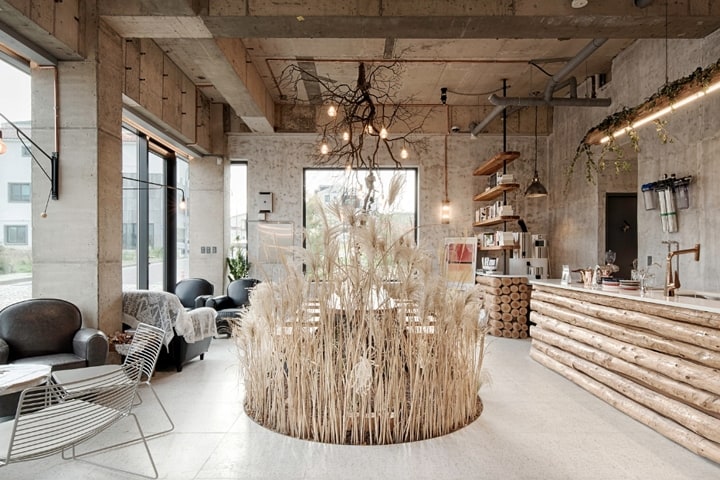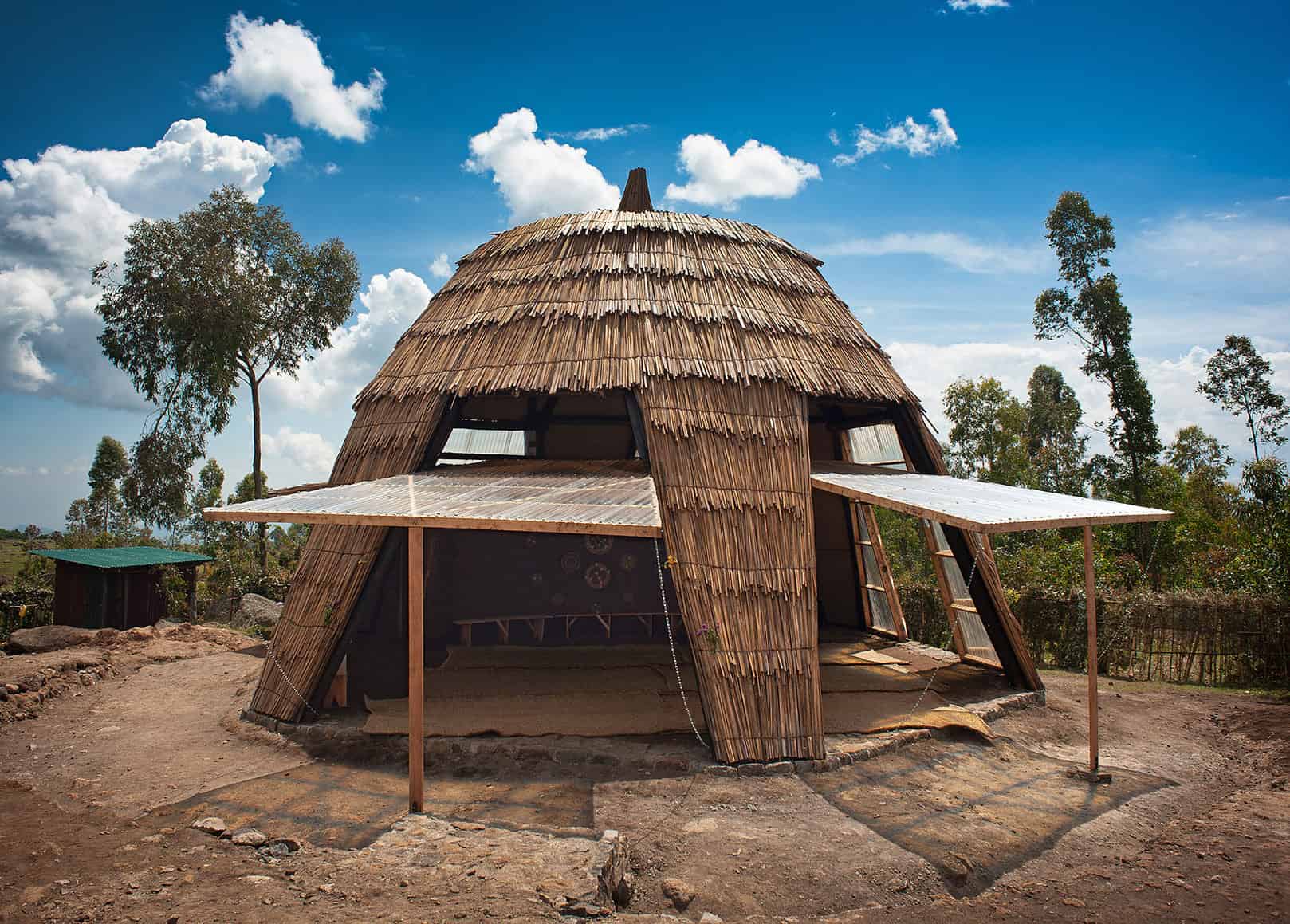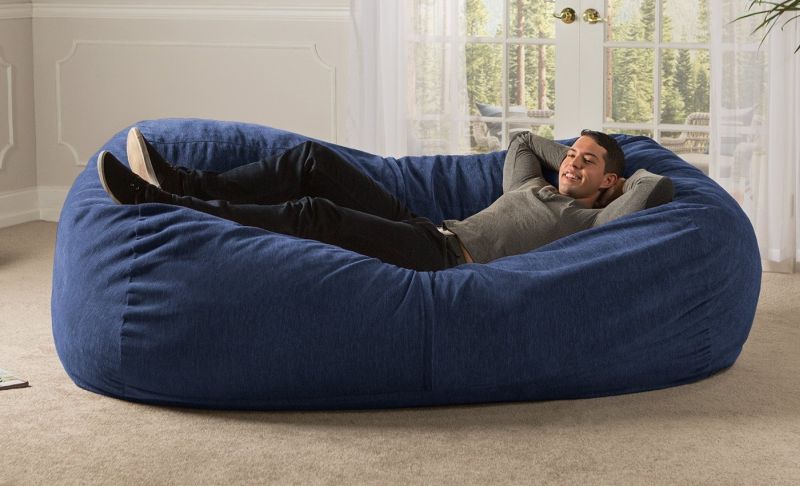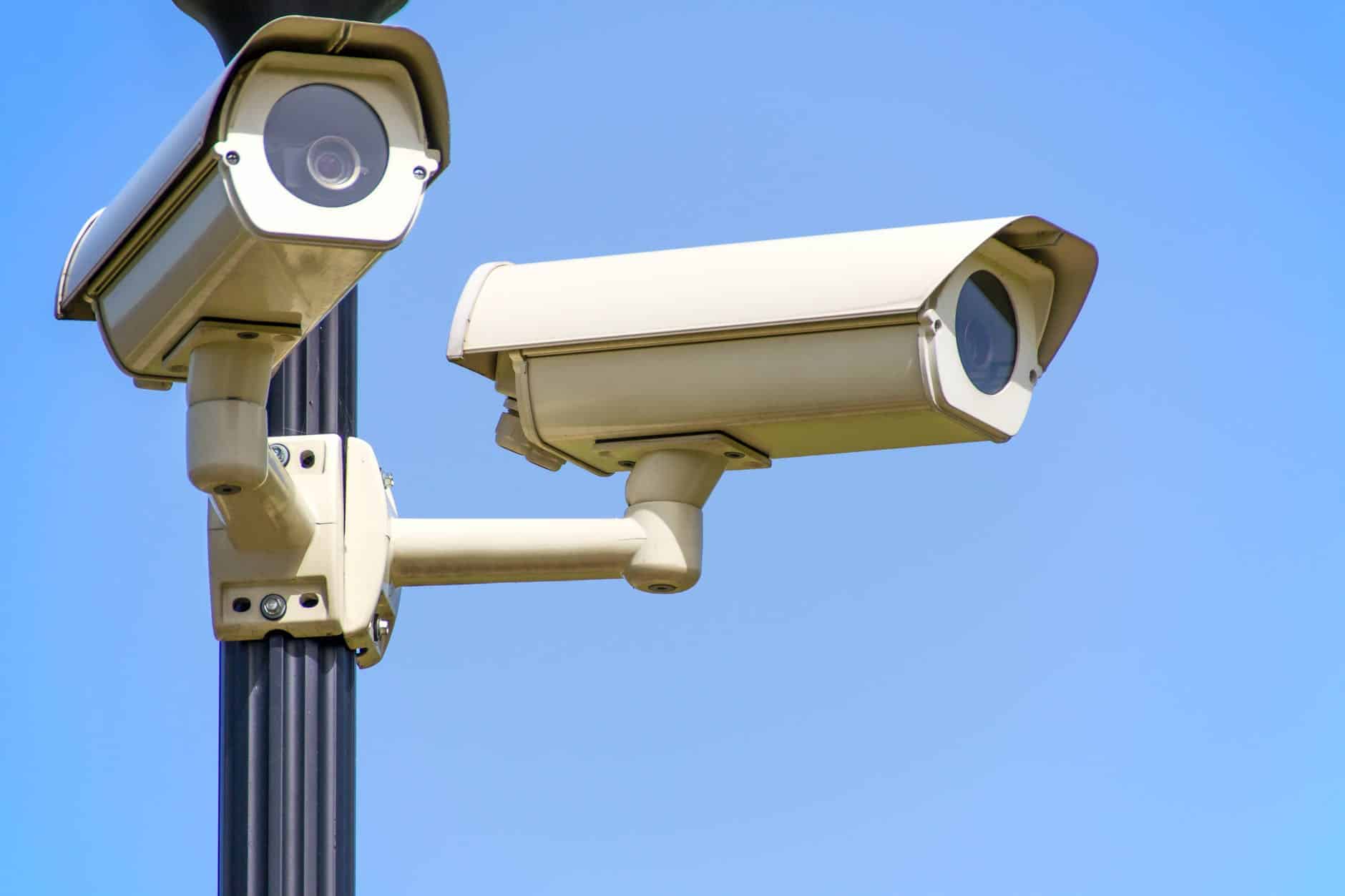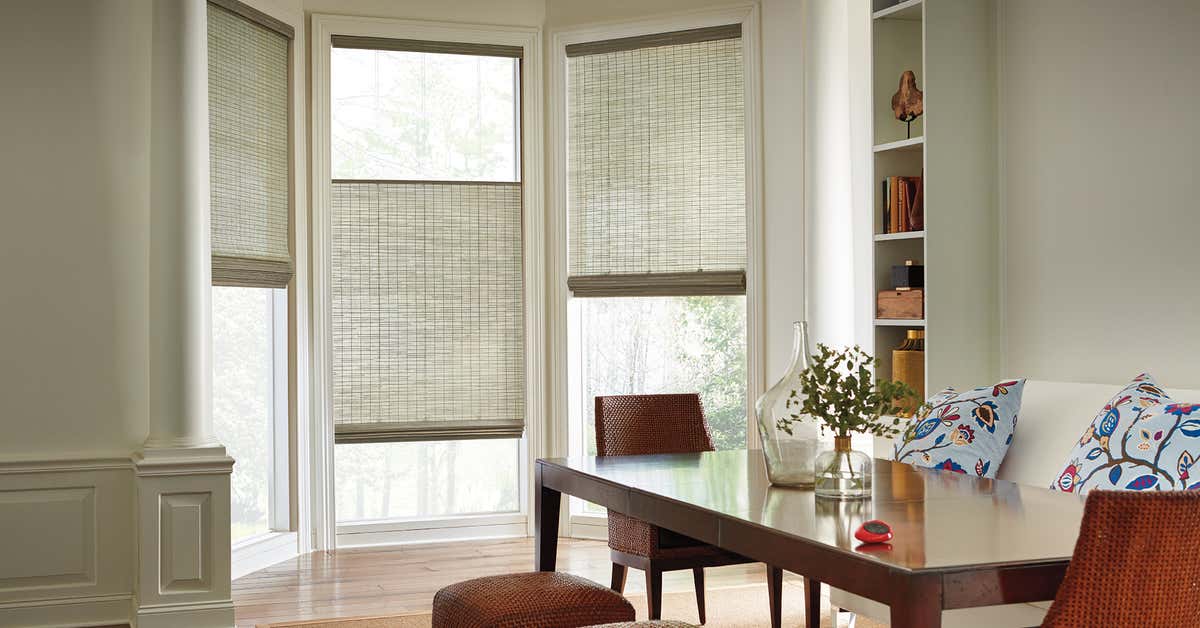At some point in the future, all homes will be designed with energy efficiency in mind. However, you can always design your own energy-efficient home. If you’re after ultra-efficient home design, you will need a design that combines state-of-the-art energy-efficient construction with renewable energy systems like solar water heating and solar electricity.
Currently, it is easier to incorporate things like passive solar cooling and heating and use energy-efficient landscaping strategies and on-site renewable energy systems.
Let’s explore the traits, features, and design techniques of an energy-efficient home in more detail so you can start contemplating how to build or find a property that is as energy efficient as possible.
What Is An Energy Efficient Home?
An energy-efficient home is a dwelling that has been designed, constructed, and equipped to minimize its energy consumption and environmental impact. It is designed to reduce the energy required to keep the house comfortable, which helps lower the cost of energy bills.

Image Credits: residentaz.com
An energy-efficient home is a house that has been built or remodeled to use the least possible amount of energy. It is intended to lower the energy consumption that is needed to maintain the comfort level of a house and, hence, lower the cost of energy bills.
An energy-efficient home refers to a house that has been built and equipped in a way that uses the least amount of energy and causes the least amount of harm to the environment. It is aimed at cutting the amount of energy used to maintain comfortable temperatures in the house, which eventually results in reduced energy bills.
Why Should I Make My Home Energy Efficient?
There are several reasons why you should make your home energy-efficient:
1. Cost savings
One of the best ways to save money in your household expenses is to make your home more energy efficient. In lowering the amount of energy in your home, you can also reduce your carbon emissions and help the planet.
2. Increased comfort
Drafts and poor insulation make it difficult to achieve a comfortable living environment in a house. This will also help in reducing noise pollution and making the environment peaceful.
3. Improved air quality
A more energy-efficient home may also improve the quality of air and lower the amount of pollutants and allergens entering it. This process is beneficial for people with allergies or respiratory problems.
4. Increased home value
Energy-efficient houses are hot items in the market and have better resale value than energy-inefficient homes. Energy-efficient retrofits are worth the costs in the future.
5. Environmental benefits
Conserving energy helps in reducing greenhouse gases in the atmosphere and, therefore, helps in the fight for a better environment. The process is environmentally friendly and contributes to the fight against climate change.
How To Make Your Home Energy Sufficient In 8 Simple Ways
1. Solar Power
It is important to include efficient solar solutions for water heating and lighting.

Image Credits: realestate.com
The average home with just one or two solar panels can generate enough electricity to run independently and, therefore, not need electricity from a provider.
Indeed, even in cloudy conditions, solar panels can more than adequately provide electricity and heat to your home.
Furthermore, you may be able to get a government grant to install solar panels.
2. Insulation
You can also add insulation to your home by insulating your attic to ensure that heat does not escape as it rises and insulating walls with blown insulation in the wall cavities.

Image Credits: familyhandyman.com
You may also opt to have a house wrap to prevent moisture and air from penetrating through the openings around the doors, windows and other parts of the walls.
If you are building your home from the ground up the use of insulated concrete forms should be considered.
Insulated concrete blocks are blocks of hollow concrete blocks that are specifically used as insulation. They are very good at energy saving.
The blocks interlock and thus form a watertight and airtight wall system.
So if you decide to build a home with insulated concrete blocks, your house will be highly energy efficient and you will save a lot of money on energy bills.
3. Efficient landscaping

Image Credits: newhomesource.com
Efficient landscaping can help to reduce the energy needed for heating and cooling by providing shade in the summer and allowing sunlight in the winter. You can then include solar panels and maximize the use of electric energy, thus saving electricity bills.
4. Smart Tech
Smart devices and smart appliances help you keep your home energy efficient.
For example, with a smart thermostat or air conditioning, you can control levels and conserve energy even when at work or on vacation.

Image Credits: howstuffworks.com
Should it be a problem or failure, you can always get the issue fixed immediately by calling national HVAC services. When you install smart tech in your home not only does it make your home more energy efficient. You also get to cut your energy bills.
Things like smart thermostats, smart lighting, and smart refrigerators and dryers, for instance.
5. Water Heaters
Did you know that water heaters consume an average of 19% of energy use in the home? For energy efficiency choose a tankless model that heats up on demand. Tankless models only heat water that is passing through them.
6. Install Energy-efficient windows
Old windows should be replaced with efficient ones that can trap heat in winter and keep it out in summer. Low-E glass and the use of multiple panes in windows can increase energy efficiency.
7. Practice Efficient lighting
Eliminate the use of incandescent light bulbs and install energy-saving LED bulbs to save electricity. LED lights consume 75% less energy. They also have 25 times the lifetime of incandescent bulbs.
8. Use Efficient appliances
Switching old appliances with energy-efficient ones will also help in energy conservation. Seek those appliances that have an Energy Star logo, for such appliances are usually more efficient than conventional ones.
Frequently Asked Questions On Energy-Efficient Homes
1. What is the most energy-efficient home?
The exact design and construction techniques used to create an energy-efficient home depend on the climate, building codes, and the preferences of the house owner. They include passive solar design principles such as orientation of the building to receive maximum solar radiation, natural ventilation and daylighting and thermal mass.
2. What are energy-efficient examples?
Do you know how to save energy at home? Energy conservation is essential because it’s beneficial to the environment and your family’s pocket. Here are some examples:
- LED bulbs: These special light bulbs use far less energy than regular bulbs. They can brighten your room and save you a lot of energy!
- Energy Star appliances: Encourage your family to look for the Energy Star label when they purchase new appliances such as fridges or washing machines. These are designed to consume less energy and help in saving money.
- Programmable thermostats: These smart thermostats can intuitively set the temperature of your house when you are not at home or asleep in order to avoid heating or cooling an empty house.
- Insulation: Insulation is a warm cover for your home. It allows you to conserve heat during the cold season as it traps the heat inside the house.
- Solar panels: These panels mounted on your roof can harness energy from the sun to power your home instead of using energy generated by burning fuels such as coal.
- Energy-efficient windows: Energy-efficient windows are windows that prevent heat from getting into your home in the winter and out of your home in the summer, so your heating and cooling systems do not have to work as hard.
- Electric cars do not emit fumes into the air as is the case with normal cars. They consume energy more efficiently and this is good for the environment.
- Passive solar design: There are some houses that are constructed in a way that they can trap the heat from the sun to warm the insides to reduce the required energy for heating.
3. What are the main factors that influence the energy efficiency of a house?
The energy efficiency of a house can be influenced by a variety of factors, including:
1. Insulation
Insulation ensures that the house has minimal heat flow between the outside and inside of the house; this enhances the efficiency of the house in terms of energy consumption.
2. Windows
Most types of energy-efficient windows are best suited for reducing heat loss during the cold season.
3. HVAC system
HVAC system is one of the major consumers of energy and improper maintenance of it can lead to higher utility bills.
4. Lighting
Energy-saving lighting like LED bulbs saves energy and cuts their utility bills.
5. Appliances
Efficient appliances like refrigerators, washers and dryers are examples of energy-hungry gadgets.
6. Renewable energy sources
One way is through renewable sources such as solar panels or wind turbines, which decrease the amount of energy the house takes from the grid.
7. Orientation and design
The facing and shape of a house may also have an impact on its energy efficiency. For example, a house properly positioned to utilize natural heating can consume less energy for heating in winter.
8. Behaviour of occupants
Behavioral factors can also influence a house’s energy efficiency. For example, the use of lights and appliances should be switched off when not in use; utilizing the natural wind instead of the artificial air system and keeping the doors and windows closed help in the reduction of energy consumption.

